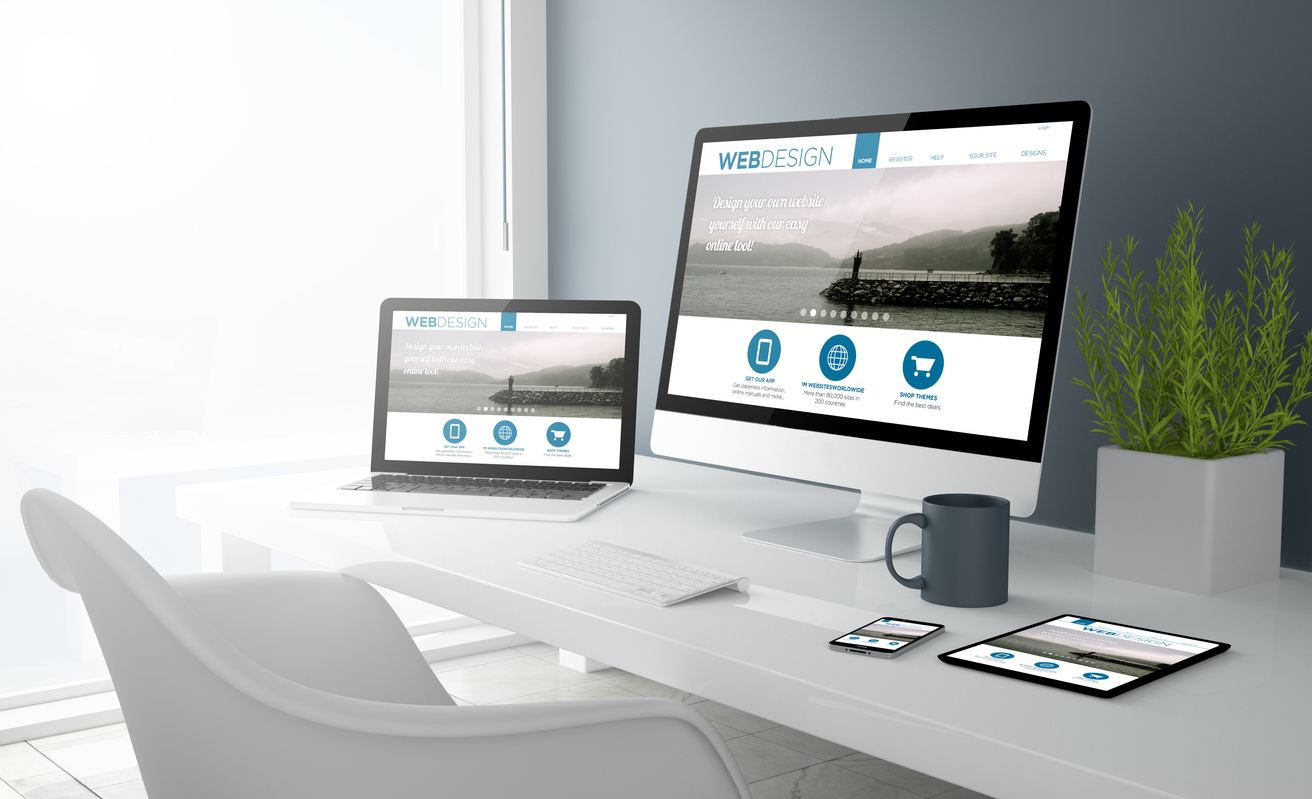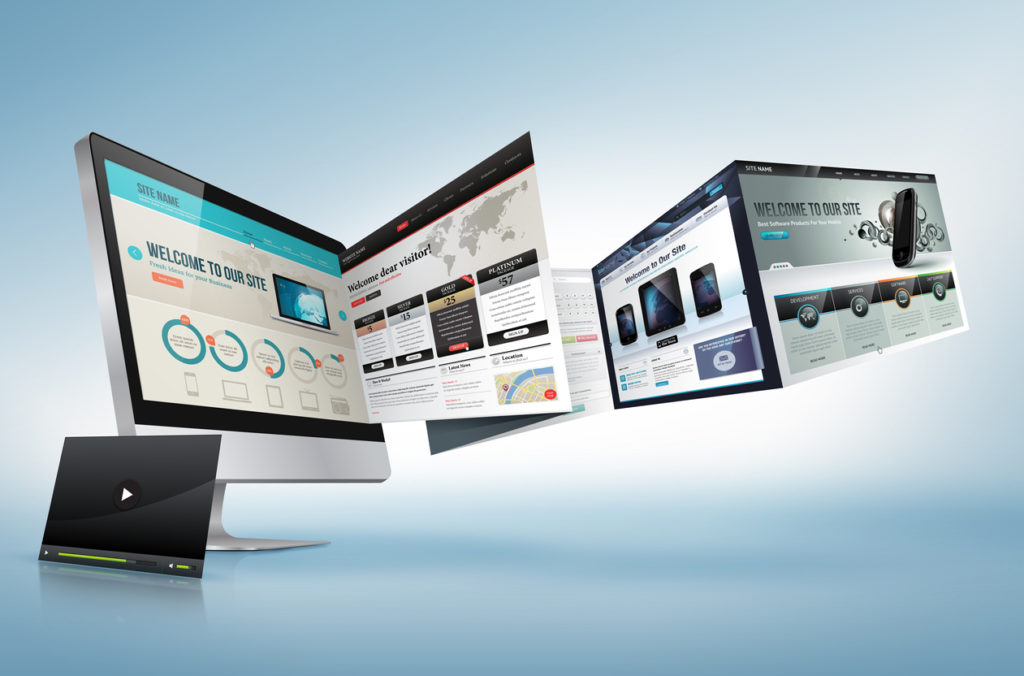
Web Development Services
Professional web development services can provide vital support for key elements of your digital marketing and other business fundamentals.
From reimagining your website design to implementing a new content management system or web application, there are numerous activities a specialist provider can help you with to ensure you’re getting the best outcomes for your business.
Before you embark on any website development project, it’s important to have a clear idea of what you want to achieve, the types of services you can procure from an external web development company and how to find the right partner for you.
Reasons to hire a web development company
Working with a web development agency is a cost that you’ll need to justify, so it’s worth taking the time to consider the most compelling reasons to outsource your development services.
Technical expertise
For many businesses, the primary reason to work with a specialist web design or development company is to access the technical expertise and knowledge required to get the job done on time and to a high standard.
Basic capabilities such as understanding HTML and CSS – two fundamental markup and web design languages that provide the foundation for every web page – are essential if you want to build a functional website.

If you don’t already have these skills in-house, partnering with a web development agency is the best way to access them without having to invest in permanent recruitment or long-term training.
Working with a qualified and competent web developer will also make it easier for you to achieve your most important goals, which could be anything from creating a new web application that will engage your audience to ensuring a smooth user experience.
Freeing up your own time
The ability to outsource your key development tasks gives you more time to focus on other key aspects of your business, such as optimising your overall user experience or planning digital marketing campaigns that will attract more traffic to your site.
Website development can be a complex undertaking that gives rise to a range of technical challenges and demands. As a result, it can prove highly time consuming, especially if the people working on it are inexperienced and frequently encounter problems that cause progress to grind to a halt.
Ongoing support
There are many reasons why you might need to retain the services of a web development company, such as consulting on the creation of a new mobile app or to help you reimagine your website design.
It’s beneficial, therefore, to have an ongoing relationship with a proven, trusted partner that understands your unique requirements and goals.
Having a development agency you can rely on will provide valuable reassurance when you’re embarking on big projects that could have a range of implications for the future of your business.

Types of web development services
To ensure you’re making the right decisions when the time comes to choose a web design and development agency, it’s important to have an idea of the types of services available and their relevance to your company.
Front-end web development
Front-end web development is concerned with the graphical user interface of your website. In the simplest terms, it dictates the look and feel of your site, and therefore has a significant impact on user experience.
Working with a web design company on front-end development will involve making decisions such as what colours, typography, icons, images and button styles are used across your web pages.
Front-end web developers typically work with programming languages such as HTML, CSS and JavaScript. They also need to ensure the pages they’re creating are optimised to display properly across various devices, from desktop computers to tablets to smartphones.
Back-end web development
Where front-end work focuses on the fundamentals of web design and the various aesthetic choices involved in creating your site, back-end development is concerned with the code required to ensure your website runs smoothly.
Again, this is critical to user experience. Visitors who are disappointed by how key pages and processes on your site function are unlikely to take the action you want them to take, whether that’s sharing their contact details, downloading a piece of content or making a purchase.
A competent back-end developer will be well-versed in programming languages such as Java, Python, PHP and Ruby. They can also help you ensure data is flowing efficiently to and from your website and that you’re able to process transactions and execute other key functions accurately.
Full-stack development
Full-stack website development is a complete solution, encompassing both front-end and back-end activities. This could be the best option to go for if you want a developer to manage every aspect of your project, from web design and user interface to making secure connections to your server.
Being able to call on a full-stack developer can be particularly useful when you’re troubleshooting or looking for holistic solutions to speed up a website design or relaunch process.
Scope of a typical web development project
When drawing up your web design and development plans, one of the key project management concepts to bear in mind is scope. Make sure you have answers to questions such as:
- What results do you want your web design or development project to deliver?
- What pages and other features are required to reach these aims?
- What is a realistic timeframe for getting the work done?
- Who will take responsibility for measuring progress and results at key stages of the project?
- How much are you prepared to spend?
It’s advisable to take a structured, methodical approach to project management that breaks the process down into distinct stages.
Information gathering
Start by collecting as much information as you can that is relevant to the full scope and various goals of the project.
That will require you to give close thought to subjects such as your target audience, their expectations of your website design, content and usability, and how you want to express your brand through your site.
It’s also worth considering how your web design and development plans link to the broader strategy of the business as a whole.
Planning and design
In the planning and design stage, you can use the information you’ve already gathered to put together a detailed plan for your website and the key goals you want to achieve with it.
This will involve processes such as developing a sitemap to list the main topics and content that will be included on your website and creating wireframes, which will be your framework for presenting the key elements of each page.
You’ll also make important visual and aesthetic choices at this stage, which can be a collaborative process with your website designer to ensure you get the end results you’re looking for.
Development
Once all the information gathering and planning is done, and the most important website design, branding and structure decisions have been made, development work can begin.
This is where skilled web designers and developers come into their own, providing the technical expertise and troubleshooting ability required to turn your plans into reality.
If you’re working with a development company, it’s important to stay in regular contact at this stage so you can keep track of how the build is progressing and help to ensure any potential delays are addressed as promptly as possible.
Testing
Before your site can go live, a crucial element in the scope of any development project is testing. Make sure you test every page and link across your site, to ensure they’re all functioning as they should be and displaying properly on various browsers and devices.
This is also an opportunity to examine the content across your website to double check things like page headings, URLs, meta titles and descriptions, all of which should be error-free and carefully tailored to drive search engine optimisation.
Launch
Once you feel confident that everything has been sufficiently tested, it’s time for launch! This is an exciting milestone on the project management timeline, but it’s also a time to be vigilant and to keep a close eye on feedback from users.
Website design and development is an ongoing process, so expect there to be issues that require solutions and maintenance tasks that need regular attention to ensure your site is functioning at a high level.
How to find a web development agency
A competent and reliable agency will greatly increase your chances of success in all areas of website design and development, from project management and planning to the creation, testing and launch of your site.
So how do you find the right partner for you?
Be clear about your budget and your needs
Budgetary restrictions and the various goals you want to achieve will be a significant factor in determining what web design services agency you should work with.

Make it clear at the start of any negotiation how much you’re able and willing to spend on the development, and don’t be tempted into paying out more than you can afford with promises of services you don’t need.
It’s also important to have firm ideas about the sort of results and return on investment you’re looking to achieve. This is crucial if you want to feel confident that the developers you’ll be working with can meet your aims.

Look at past projects and client work
Past client work is among the clearest and most reliable indicators of the sort of results you can expect to achieve by collaborating with a particular web design agency.
When evaluating potential providers, ask to see a range of examples of past projects for previous customers and the business benefits they have generated. This will help you assess the capabilities of each web design agency you talk to, and also envision the outcomes they might be able to provide for you.
Make sure you’re happy with the workflow
Every web design agency and web developer has different ways of working. When you’re considering potential partners for your business, it’s important to look into the various methods and workflows they use and to ask how compatible they would be with your own processes.
Look for answers to questions such as:
- Who will be your main point of contact?
- How will you be kept up to date and informed about how the development project is progressing?
- How will responsibilities be divided between different parties and stakeholders?
- How will unforeseen problems or delays in the project be managed?
The relationships you establish with web design agencies and developers could have a big impact on the broader performance of your business. It’s crucial, therefore, to make sure you’re happy with the answers to these and other key questions before committing to a relationship.